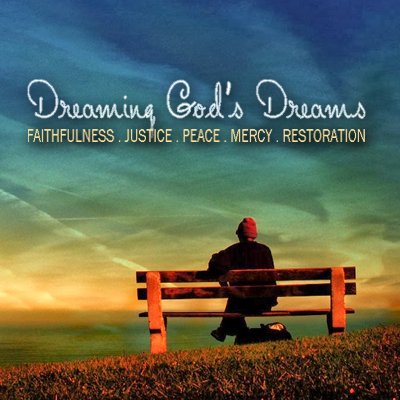What Does the Lord Require?
Dreaming God’s Dreams
Sunday, October 23, 2022
Micah 6:1-8, Amos 5:14-24
He has told you, O mortal, what is good, and what does the Lord require of you but to do justice and to love kindness and to walk humbly with your God?
Micah 6:8 (NRSV)
Listen to this week’s sermon here:
____________________
We talk a lot about social justice these days, and indeed, we cannot truly call ourselves followers of Christ without working toward justice for all people. The problem is that we tend to define justice in political terms rather than biblical terms. What the "left" often calls "paying our fair share" so that everyone can have what they need, those on the "right" tend to say is stealing from their hard earned gains. Just like the classic story of Robin Hood, justice becomes a matter of perspective. Are Robin Hood and the poor people he is helping suffering from a systemic injustice fueled by the greed of the wealthy or are the rich being treated unjustly because Robin Hood is stealing what rightfully belongs to them?
So long as we talk about justice in such either-or terms, we may never agree on what kinds of policies will truly bring about "justice for all."
But what if justice is not our starting point, but the product or fruit of our life of faith? Micah, Amos, Hosea, and countless other prophets, not to mention Jesus himself, emphasize that justice and righteousness are absolutely necessary in bringing about the Kingdom of God. Micah specifically declares that God requires justice, faithful love, and humility, but what if these are not three separate characteristics of our lives?
What if instead, these characteristics actually represent the process of sanctification, or growing in grace, and perhaps even the process of our very salvation.
People can promote policies for social justice without embracing faithful love or demonstrating humility. But the reverse cannot be true. We cannot walk humbly with God without growing in faithful love and we cannot grow in love without that love manifesting itself through justice and righteousness.
Remember the classic children's book, Charlotte's Web?
Charlotte, the spider, is working to help save the life of a pig named Wilbur. Fern, the farmer's daughter, thinks that slaughtering Wilbur just because he was the runt of the litter would be a horrendous act of injustice.
Charlotte proceeds to write descriptive words about Wilbur in her web to make the world take notice of just how special this pig is. The last of those words was "humble." Here is Charlotte's definition of humility.
Humble. Humble has two meanings: it means "not proud" and and it also means "near the ground." That's Wilbur all over.
Most of us don't view ourselves as proud, at least not in a negative or arrogant sense, but perhaps we should pay closer attention to the second meaning, "near to the ground."
For Wilbur, this was quite literal. He is a pig, after all.
But what if God is calling us to live our lives "near to the ground" as well? What if walking "humbly with our God" might require walking with the lowest of the low, or the "least of these" as Jesus says in Matthew 25? What if it means taking notice of the little ordinary ways God is at work in our everyday lives and in the lives of others, even if we or they don't recognize it yet? What if it means seeing everybody, even the "runts" of society, as people created in the image of a God who loves them as much as God loves us?
When we begin to live this way, our perspective shifts. The Holy Spirit moves us with love and compassion for those who live on the margins of society. It may not solve the problem of our political policies and social justice programs, but this perspective will motivate us to do justice for those individuals, families or groups God puts directly in our path.
We may not be able to end all poverty, but we might, for example, be able to help one person finish their education or find a job so that they can begin breaking the cycle of poverty in their family.
Walking humbly, or "near to the ground," is the first step. It is only from this perspective that we can move past our stereotypes and notice people for who they are.
If humility is the seed, love is the tree and justice is the fruit we bear.
Let us pray...
All those people goin' somewhere
Why have I never cared?
Give me Your eyes for just one second
Give me Your eyes so I can see
Everything that I keep missing
Give me Your love for humanity
Give me Your arms for the broken-hearted
The ones that are far beyond my reach
Give me Your heart for the ones forgotten
Give me Your eyes so I can see
(Brandon Heath, Give Me Your Eyes)





